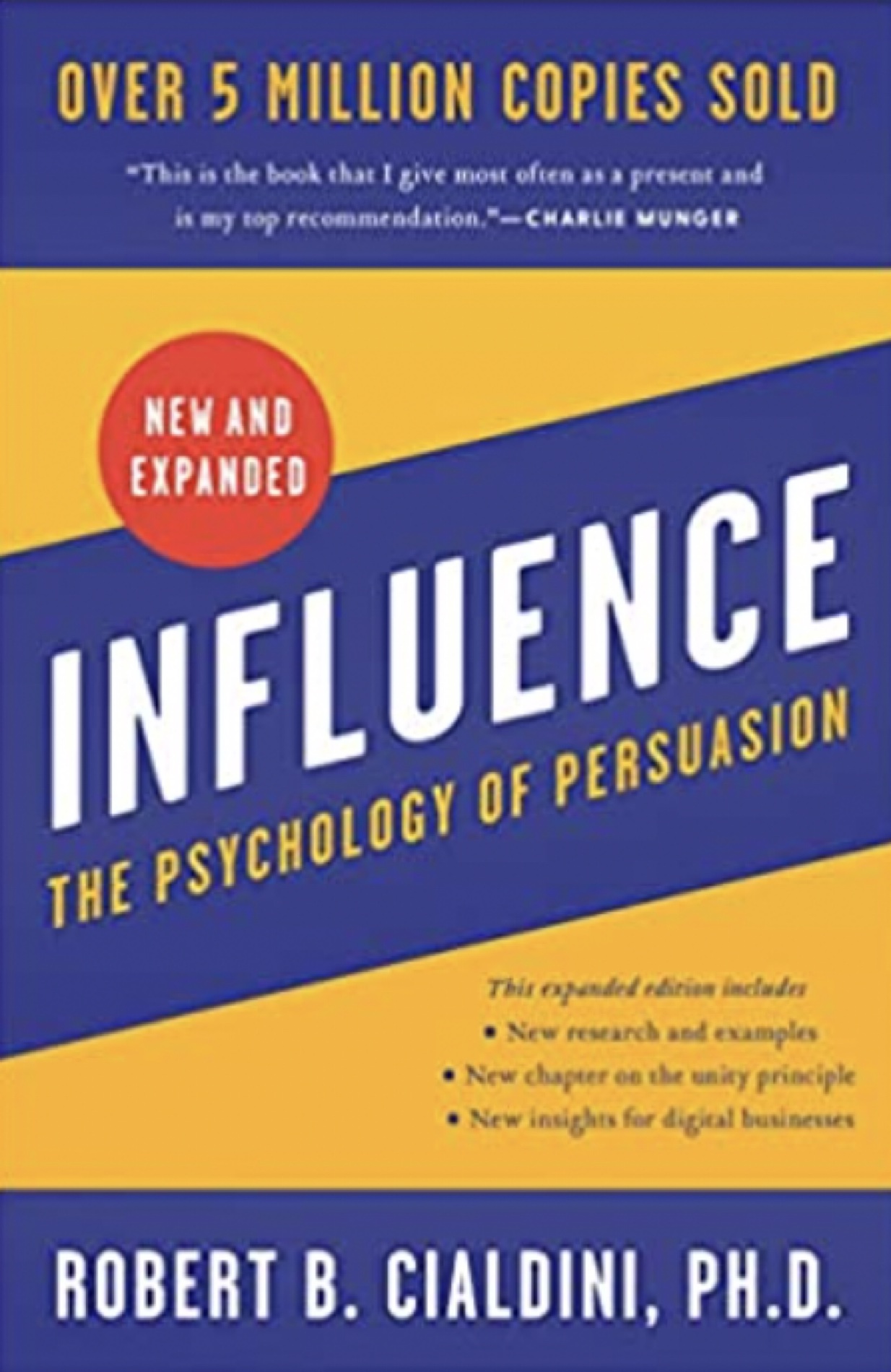
Influence: The Psychology of Persuasion by Robert Cialdini describes the psychological process in people when they say yes and explains how these insights may be applied. While it was written as a business book, it also applies to teaching and everyday life. Be sure to put a copy in your professional development library.
1. Levers of Influence: (Power) Tools of the Trade
- Animals and people both have automatic behaviors that are set off by a single stimulus. For example, turkey mothers will care for an inanimate object if it makes the cheap sound of a baby turkey. Likewise, humans are much more likely to do a favor for a stranger if they are given a reason starting with the word because. Humans also think that expensive things are good as the word cheap is seen as inferior rather than inexpensive. Believing an expert is another automatic behavior. Life is complex and without our automatic rules of thumb, we wouldn’t get much done. It’s important, however, to realize when we have the time and the need to engage in more complex thinking.
- The contrast principle tells us that how we perceive something depends in part on things we have recently perceived. When two hands placed respectively in hot and cold water are moved to room temperature water, the one that was in hot water feels cold and the one that was in cold water feels hot. Also, seeing highly sexually attractive people on TV may make our spouses seem less attractive. There are several other examples here dealing with selling strategies.
2. Reciprocation: The Old Give and Take
- A basic norm of human culture is the obligation to somehow repay a person who gives or does something for you. Such future obligations often lead to continuing relationships. People can use this to their advantage by giving something before asking for something. Politicians do this and they are also easy to buy. So are scientists.
- People can also ask for a more extreme initial concession prior to lowering the ask. This often works a we often see the lesser obligation preferable to the greater one. The trick is to make your first offer just high enough. This usually makes one feel more responsible and satisfied. If someone gives you something for free, be ready for them to ask for something. Consider denying these requests.
3. Liking: The Friendly Thief
- We are more likely to say yes to someone we like. People who want something are therefore likely to do things to increase their likability. Being physically attractive is one way to increase likability. (Doug: This suggests that it’s a good idea to bet fit, well groomed, and well attired. In other words, dress for success.) We are also more likely to like people who are like us. Good salespeople also use this to their advantage. Associating something with someone famous has been shown to work.
- Praise is also used to increase likability. Giving praise to a third party that you know will get back to the person your are praising is effective. You can also use praise to give a person a reputation to live up to. Repeated contact in positive situations helps. Persian curriers knew that baring bad news was risky and even life threatening as the ancient Persians did kill the messenger. In all occasions associate yourself with as many good things as possible and visa versa. We won, they lost. Be alert for situations where you are liking someone more than would be expected. In such cases separate your feelings about the requester from the offer itself.
DrDougGreen.com If you like the summary, buy the book





